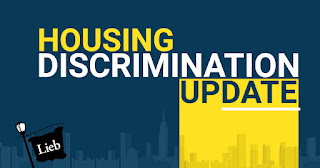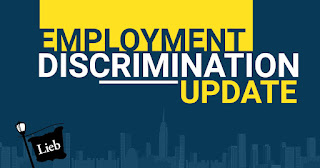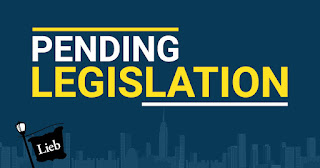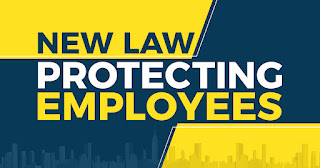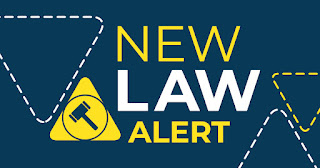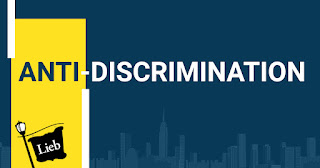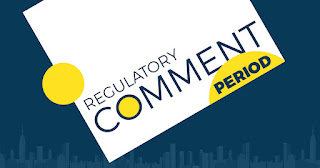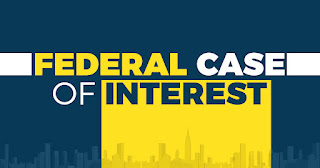As the landscape of anti-discrimination law continues to evolve, New York's Labor Law Section 201-g has seen significant updates that employers / employees should be aware of.
The updates, which are encompassed in a Model Sexual Harassment Prevention Policy, aim to strengthen workplace protections and foster a safe environment for all employees. New York employers must adopt the model policy or create their own sexual harassment prevention policies that meet or exceed state standards. They are also obligated to provide employees with annual sexual harassment prevention training.
Let's take a closer look at the key changes:
1. Expanded Definition of "Sexual Harassment:
The new policy broadens the definition of sexual harassment to include harassment based on gender, gender identity, gender expression, or sexual orientation. It recognizes that harassment doesn't have to be of a sexual nature, emphasizing that any form of harassment related to these characteristics constitutes sexual harassment. Furthermore, the policy defines important terms such as "cisgender," "transgender," and "non-binary" to ensure a comprehensive understanding.
2. Updated Standards:
Previously, proving a claim of sexual harassment required demonstrating that the conduct was "severe and pervasive." However, the updated policy aligns with the law's 2019 amendments which eliminated this strict standard. Instead, it emphasizes that New York plaintiffs need only show they experienced inferior treatment compared to others based on protected class membership, similar to the standards set by the New York City Human Rights Law.
3. Virtual and Hybrid Workspaces - A New Frontier of Harassment:
The updates in the law recognize the rise of virtual and hybrid workspaces, providing examples to illustrate what constitutes harassment in these contexts. In a world where many employees continue to work remotely, it's crucial for employers to understand and address harassment that may occur outside of the physical office. This includes unwelcome comments or behaviors in virtual meetings and messaging apps, among other things.
4. Universal Application Across Discrimination Types:
The law clarifies that the policy applies equally to all forms of discrimination based on other characteristics, such as race, age, religion, disability, or sexual orientation. It underlines the fundamental principle that all employees should be free from any form of discrimination, regardless of its nature. The reporting and investigation procedures for other forms of discrimination are aligned with those for sexual harassment, ensuring consistent treatment and protection across all protected classes.
5. Interplay Between Sex and Other Protected Characteristics:
The revised law offers examples showing how sexual harassment can intersect with other forms of discrimination. These instances are crucial for employers to understand as they illustrate complex situations where employees might be subjected to discrimination based on multiple protected characteristics simultaneously.
6. Third-Party Intervention: A Key Role:
One key update emphasizes third-party intervention in instances of perceived harassment or discrimination. The policy provides a clear set of five steps that bystanders can take to intervene and support those affected, including interrupting the harassment, seeking help from a third party, making a record of the incident, checking in on the target, and confronting the harasser. This change underscores the collective responsibility within organizations to maintain a respectful and inclusive work environment.
7. Strengthened Retaliation Protections:
The policy's retaliation section now explicitly lists examples of retaliatory actions, including disparagement on social media platforms. Importantly, employees are protected from retaliation even if the alleged conduct is not ultimately deemed unlawful, provided they had a good faith belief that it was. This provision encourages a safe reporting environment for all individuals.
8. The Responsibility of Supervisors:
Supervisors play a critical role in maintaining a harassment-free workplace. The updated policy emphasizes that supervisors must not wait for a formal complaint before reporting incidents of harassment. It highlights their duty to offer accommodations to victims and highlights the potential disciplinary consequences for supervisors who fail to report known instances of harassment.
Streamlined Complaint and Investigation Process:
The new policy streamlines the complaint and investigation process, with an emphasis on promptness. Investigations should be initiated and completed as soon as possible. Additionally, employees are no longer required to submit complaints solely through the policy's complaint form; they can report incidents orally or in other written forms such as emails.
The revised sexual harassment prevention policy in New York State signifies a crucial step forward in creating safer and more inclusive workplaces. By familiarizing themselves with these changes, employers and employees can contribute to a work environment free from discrimination.


